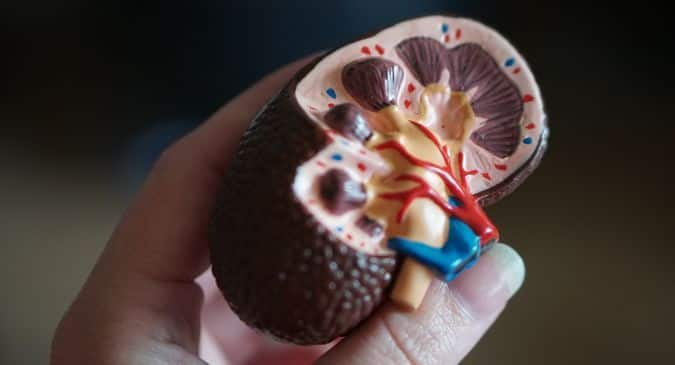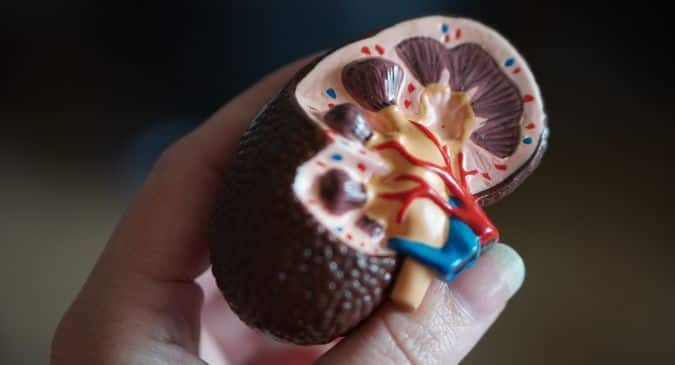 Dialysis or Kidney Failure transplantation are preferred treatments for patients with end-stage renal disappointment.
Dialysis or Kidney Failure transplantation are preferred treatments for patients with end-stage renal disappointment.
With the developing number of chronic disease patients, it is becoming progressively crucial for individuals to live healthy lives. But unfortunately, kidney illness is among India’s driving reasons for handicap, dismalness, and mortality, inferable from the worldwide infection burden. Therefore, Sujit Chatterjee, CEO of Dr L H Hiranandani Hospital, shares the timelines for kidney failure treatment.
End-stage Renal Disorder
ESRD (End-stage Renal Disorder) influences one out of every ten individuals. End-stage renal failure is the last, extremely durable phase of chronic kidney sickness wherein kidney capability has relapsed to the point where the kidneys can never again work alone. Dialysis or kidney transplantation are preferred treatments for patients with end-stage renal disappointment.
Kidney Transplant
A kidney transplant is a leading solution for most patients; accordingly, it becomes fundamental to consider your health and well-being. Here is a rundown of pointers to assist you with a better comprehension of the kidney transplantation process. As kidney disappointment advances, patients might encounter many side effects. Weariness, sleepiness, diminished pee or failure to pee, dry skin, irritated skin, migraine, weight reduction, nausea, bone agony, and simple swelling are a portion of the side effects.
Warnings And Symptoms
The illness can be determined with the help of blood tests, pee tests, kidney ultrasounds, kidney biopsies, and CT checks. Alongside understanding the courses of events for kidney transfers, it is likewise fundamental to know about serious kidney infections. It is essential to know about serious kidney illnesses and their medicines to work on one’s body per personal satisfaction. Overlooking the warnings and symptoms can place a detrimental risk on a person’s life.
Working of Kidney
The kidney is a critical piece of the body since it dispenses with a wide range of waste and extra organic liquids. Good kidneys consistently filter about a portion of some blood, extricating waste and overabundance of water to create pee. Pee streams from the kidneys to the urinary bladder through two small muscle tubes called ureters, one on either side of your bladder. Finally, Pee is put away in your bladder. The urinary lot contains the kidneys, ureters, and bladder.
What comes to pass during Kidney Failure?
The kidneys have a fundamental impact on waste removal in the body. They pump 45 gallons of blood to eliminate the waste products blended into the blood. This interaction is vital for regular body work.
At the point when the kidneys quit working, the waste products are not washed away. Instead, waste starts to develop in the body and increments circulatory strain to hazardously significant levels, bringing about kidney disappointment.
Options Available
Kidney transfers are done under the management of prestigious nephrologists, and all vital safeguards are taken. At the point when you have kidney failure, your nephrologists will suggest one of two treatments:
Kidney Transplant: A kidney relocation is a medical procedure to supplant an unhealthy kidney with a suitable kidney from a giver. The kidney might come from a living or a departed contributor. One of the kidneys of a family member or a Cadaver kidney might be donated. A live transfer is a name given to this sort of transplant. Benefactors of kidneys can carry on with good lives with one working kidney. This is a life-saving procedure when the kidney has altogether quit working.
Dialysis: Dialysis is one more process in which blood is sifted utilizing a machine. It is required when your kidneys cannot efficiently focus on your body’s necessities. Poisons are artificially flushed from the body, and the device precisely performs kidney capabilities.
Kidney Transplant-The preferred and best solution
A kidney transplant is a superior choice since it ensures exceptional personal satisfaction and kills monthly medicines and treatment requirements. Moreover, this treatment has fewer dietary limitations, and you feel more vigorous than other treatments. Besides, kidney transplantation has lower possibilities of deficiencies because of medical problems.









